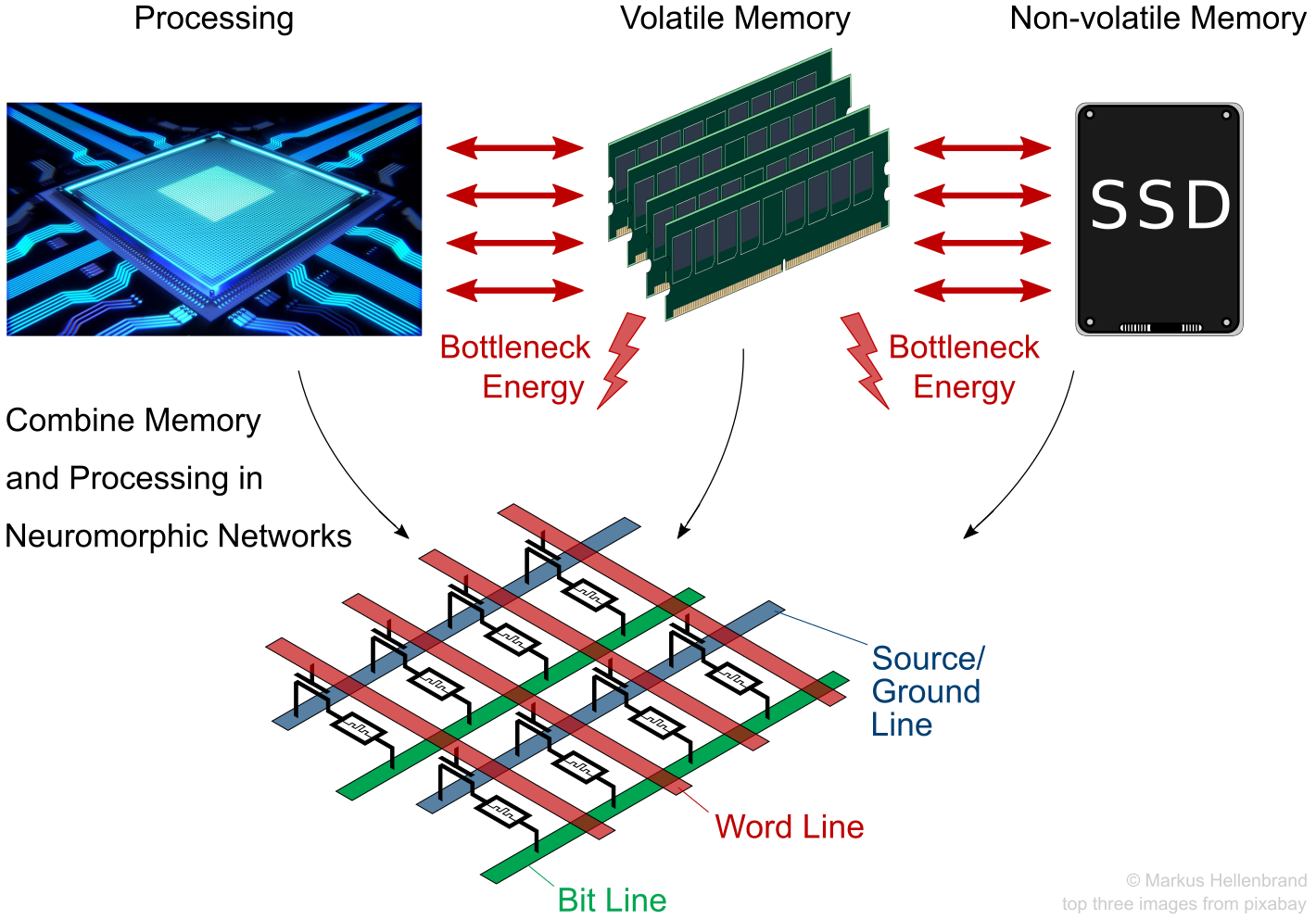Research
NeuCam brings together researchers working on a wide range of approaches to neuromorphic computing to maximise research success by collaborating and learning from each other.
The general idea of neuromorphic computing is making use of our understanding of biological brain activity to revolutionise how computing works. In conventional computers, information is stored as 1s and 0s and computing is carried out by loading the stored data from memory blocks into the processing unit, carry out data operations, and then shuffle the results back to the memory blocks. Over the past decades, processing speed has vastly outpaced memory speed and as a result, the "memory bottleneck" opened up, which limits the overall computing efficiency, because the slower memory speed leads to prolonged processor wait times. In addition, the data which is being generated nowadays and needs processing, is largely 'unstructured'. Typical examples of such data are pictures and videos and our conventional computing architecture is not optimised for such data.
In biological brains on the other hand, information is stored in the strengths of synaptic connections between billions of nodes called neurons, and the same structure 'computes', i.e., processes, the data. Neuromorphic computing tries to harness these principles by creating large arrays of interconnected artificial synapses which cannot only adopt values of the binary 1s and 0s, but continuous states, just as synapses in the brain. Such artificial synapses can be based on different physical mechanisms such as resistive switching, ferroelectric switching, or materials phase changes. All approaches have their strengths and weaknesses and research is ongoing in various promising directions. Here, we provide examples of resistive switching and ferroelectric switching.

